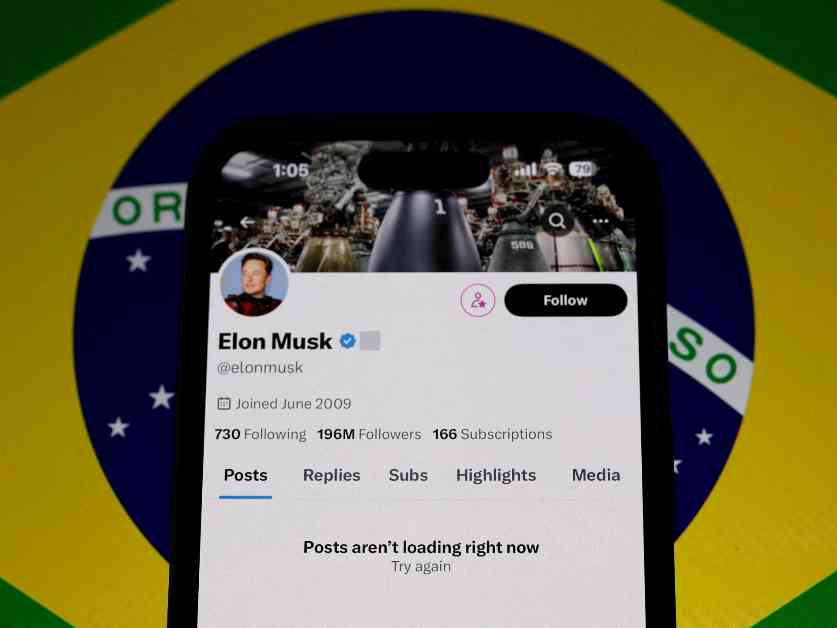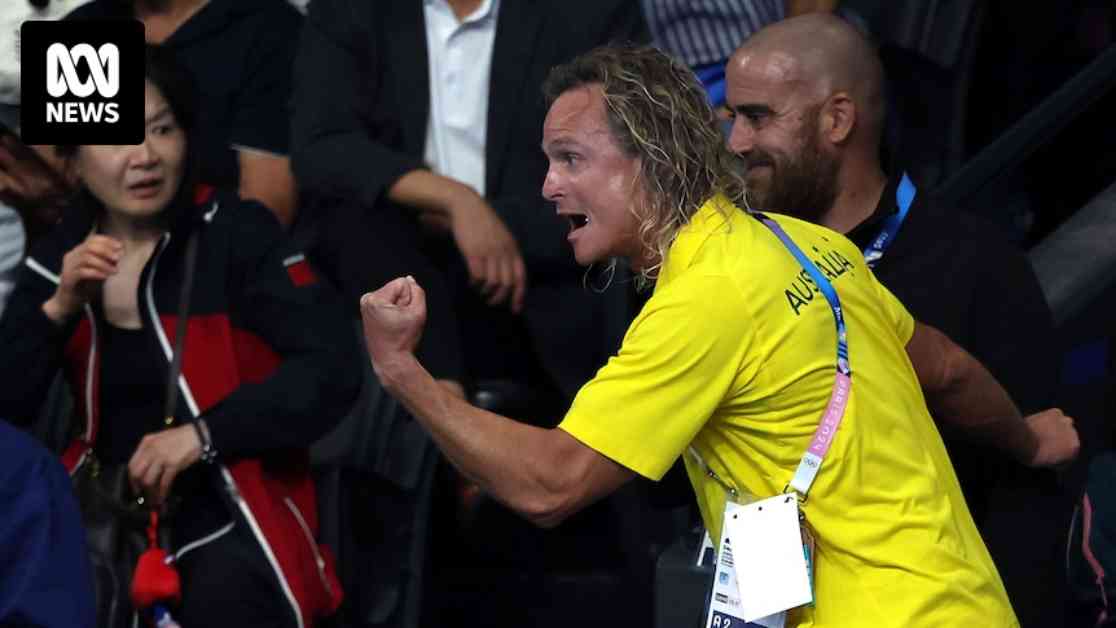Elon Musk’s Social Media Platform X Faces Controversy in Brazil and Beyond
In a recent decision by Brazil’s Supreme Court, all five judges voted to uphold a ban on Elon Musk’s social media platform X in the country. This ruling rendered the mobile app inaccessible to almost 212 million users in Brazil. The ban came after Anatel, Brazil’s telecommunications regulator, instructed internet service providers to halt access to X due to the platform’s failure to appoint a legal representative in the country, as required by Brazilian law for foreign companies operating there.
Supreme Court Justice Alexandre de Moraes set a deadline for X to comply with the legal requirement by August 29. However, when the deadline passed without action from Musk’s platform, de Moraes criticized Musk for showing “total disrespect for Brazilian sovereignty and the judiciary.” In response, Musk called de Moraes “an evil dictator” for shutting down the “#1 source of truth in Brazil.”
In addition to the ban, de Moraes imposed a daily fine of 50,000 reals ($8,965) on businesses and individuals in Brazil using virtual private networks (VPNs) to access X. This move aimed to prevent users from circumventing the ban and accessing the platform illegally.
This is not the first time X has faced controversy in a country. China was the first to ban the platform in June 2009, then known as Twitter, just days before the 20th anniversary of the Tiananmen Square massacre. The decision to ban X in Brazil stemmed from concerns over fake news and hate speech spreading on the platform, particularly after a mob of ex-President Jair Bolsonaro’s supporters stormed the National Congress in January 2023.
Following the incident, the Brazilian Supreme Court ordered X and other social media platforms to restrict accounts linked to fake news and hate speech, which were referred to as “digital militias” in Brazil. While Musk initially expressed concern and complied with the order, tensions escalated in April when de Moraes requested X to block accounts spreading misinformation about Bolsonaro’s defeat in the 2022 general election. Musk refused and removed X’s legal representative in Brazil in protest.
The requirement for foreign companies operating in Brazil to have a legal representative in the country is crucial for ensuring compliance with local laws and regulations. This representative acts as a liaison between the company and local authorities, handling legal matters on behalf of the foreign entity.
Former Brazilian President Jair Bolsonaro has been vocal in opposing the ban on X, leading thousands of people in protests against the decision. Musk, on the other hand, announced the closure of X’s local operations in Brazil due to demands by Justice de Moraes that would require the platform to violate Brazilian, Argentinian, American, and international laws.
Beyond Brazil, X has faced bans or attempted bans in several other countries, including Iran, China, North Korea, Myanmar, Turkey, Venezuela, Pakistan, Ethiopia, and Australia. These bans were often linked to issues such as government censorship, political unrest, national security concerns, and disputes over content moderation.
Under Musk’s leadership, X has taken a different approach compared to its previous owner, Jack Dorsey. Musk’s bold and sometimes controversial decisions reflect his personality, influencing the platform’s response to legal challenges and government regulations. Musk’s acquisition of X in 2021 for $44 billion marked a significant shift in the platform’s direction.
Despite facing challenges in various countries, X has continued to operate globally, navigating complex legal and political landscapes. The platform’s history of controversies with political sides highlights the delicate balance between freedom of expression, government regulations, and corporate responsibility in the digital age.



























